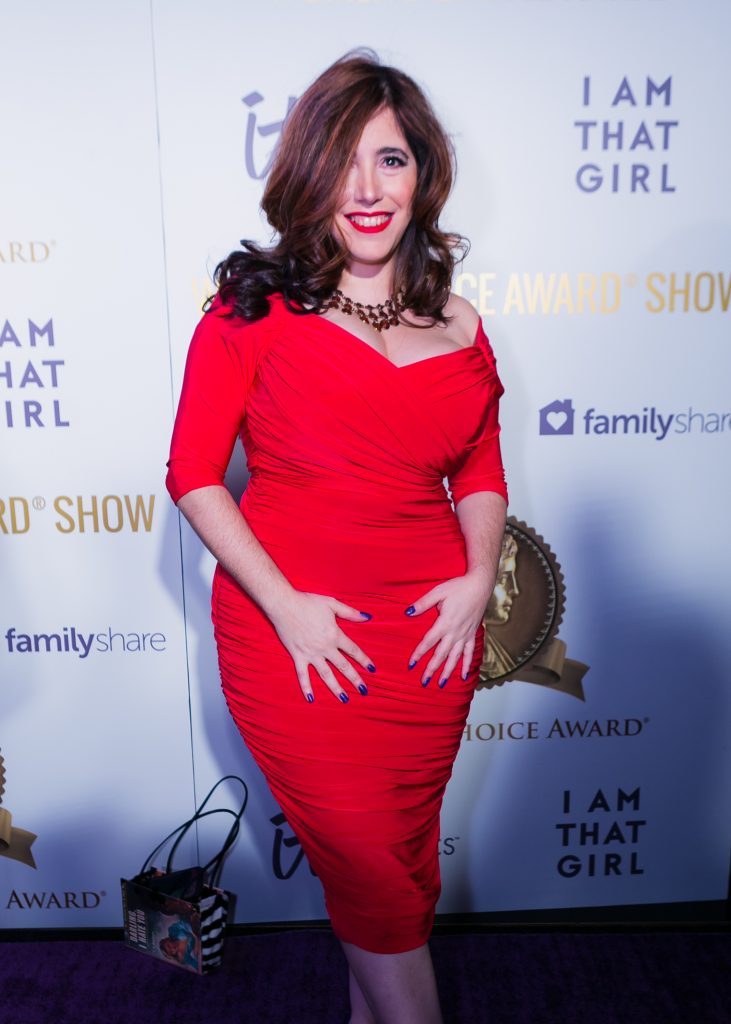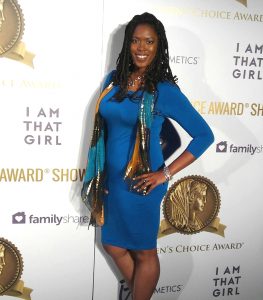A couple of weeks ago, I attended the first ever Women’s Choice Awards. I had never heard of it, but the guest of honor was Ms. Sharon Stone, for the Icon Award, presented by her good friend, Kathy Griffin.
There was a purple carpet for esteemed guests, including their official correspondent Deborah Cox, and nominees. There were fine hors d’oeuvres, and then a sit-down dinner as performers, presenters, recipients and host Meredith Vieira took the stage. Judith Hill opened the ceremony with a powerful rendition of “Sisters Are Doing It for Themselves” and Sharon Stone gave an amazing acceptance speech towards the Award’s end.
And yet, this was probably an award show that you haven’t heard of. That’s probably because it wasn’t televised.
In Sharon’s powerful speech that night, she remarked–
“I want you to think about that this would have been televised if it was about men.”
She couldn’t have been more right.
Think of a great deal of the commentary that’s been said about “Wonder Woman”—how shocked people are about the great success, and how amazing the content is. It’s not perfect, but the fact that it’s a summer blockbuster, one, I think that will surpass the revenue of “Guardians of the Galaxy: Vol. 2” this summer, and break more records than it already has, the shock was only due to the fact that it’s about a heroine, and not a hero. If there was anything to be said about it, it should have been surprise at how well received a DC film from this revamped section of the universe is doing. [And that isn’t a dig at the DC film-verse—I’m one of the few who really enjoyed “Batman V. Superman” and a good chunk of “Suicide Squad.”] But no, as always, the focus was on who was the lead was, what she wore, and her genitals.
I was actually able to speak with nominee and winner, Jennifer Pozner, founder of Women In Media & News and author of the novel Reality Bites Back. Jennifer does lectures, workshops and media training for organizations and individuals who want to be more effective in their causes, change narratives and improve narrative with the issues they care about.
When asked about Sharon Stone’s speech, and the overall lack of exposure for this tremendous award show night, she had this to say:
“I was really glad Sharon Stone took a minute to point that out. It’s frustrating and frankly disgusting that this was not televised. Many networks had the opportunities to televise it if they had wanted to. Two of the four categories were celebrity focused: the Spotlight category, the Voice of Women category, and Stone’s Icon Award. When two of the four main categories are about very famous people, that is usually the formula for a slam dunk for TV. You fill something with celebrities—people with strong name recognition—that’s a relatively secure ratings booster. The fact that television networks and online TV platforms declined this…I would love for them to recognize that this was filmed, and they can still have the ceremony and televise it. The structural misogyny embedded in corporate media clouded the decision whether or not this deserved to be seen. Sharon Stone was right. I believe that 100%. I understand that networks don’t value women; you’d think that they’d at least air the thing because it’d draw a lot of female viewers, which would be good for commercials and aiming products at female consumers, but even that was not enough to make networks decide that they needed to devote an hour or two to celebrating women who make a positive difference in their country, and in the world. What that points to is one of the very reasons that I do the work I was nominated for in the first place.”
“Once they explained the differences in the categories, I felt really good about accepting the nomination because I’ve been doing media analysis and media activist work since I was a teenager. I was happy to be involved in a ceremony that honors women’s leadership. A lot of the accolades women get in pop culture are about their appearance. I feel like it’s really important for young women to know that they are valued for who they are in the world, and how they are taking leadership.”
“I didn’t accept the nomination right away. I wanted to make sure it was ethical. ‘Am I gonna be in the position where I’m gonna ask people to vote for me instead of Alicia Garza, who is among the most crucial racial justice leaders in America?
Because if so, I said I’d say, ‘Turn down the nomination and just tell everyone to vote for her.’”
The Women’s Choice Awards was an award show truly set apart. And now is the perfect time for such an award show, as it celebrated how women contribute to the world, and the power that women have. Jennifer elaborated on this point when she explained the importance of her category, The Voice of Women Award, which was for changing and improving media for women and girls:
Jennifer, unlike me, was very accustomed to being in rooms full of badass women. What was foreign to her, however, was why they were all there.
One of the questions I ended up asking her was, what it was like to be in that room; a room full of accomplished and powerful women. I asked because, I ended up at a table not with a bunch of press people, but I sat amongst female CEOs, women with power in their respective industry. I don’t know how that happened, but I wasn’t complaining. It was a new, and invigorating feeling. I’ve seen some outstanding women on TV and film and in interviews, but never before have I had the opportunity to sit down and break bread with them. There were activists, actors,
filmmakers, athletes, billionaires, comedians, talk show hosts, and journalists.
It was truly an honor to be there, even as a spectator.
Jennifer had some final thoughts as to why this is show was important, and also how events like this can be better:
“I’m not used to being in rooms where women’s accomplishments are all seen as important, valued and valuable, regardless of income, class status, racially and economically diverse. That to me is important.”
Another thing that I worked on while there were my networking skills. I didn’t do nearly as much as I would have hoped, but I put forth a decent effort. I showed up, alone, and tried to find people to talk to pre and post show. I’m a freelance writer, and most times, it’s rough finding quality work. One of the initial places I planned to post this piece, well, sad to say it went under. So, I find myself, sitting here without a deadline, writing about this event for free because, I feel that this is an event that people need to read about, know
about, and hopefully, one day actually view. The Women’s Choice Awards was recorded, and I still think that it will get its chance to air.
Jennifer had some final thoughts as to why this is show was important, and also how events like this can be better:
“It was a huge honor…It’s an emotionally fulfilling and gratifying thing to have won because when I started doing feminist media criticism and media activism, it was not even a field, yet. I’ve worked my whole life to help build a feminist media justice movement, and I have sacrificed so much for this movement. I’ve worked mostly unfunded; for example, I couldn’t afford health insurance for fifteen years. It’s so lovely to know that I’ve inspired people…but when people—especially very wealthy people—then say, ‘Keep up the great work!’ and, ‘Keep doing what you’re doing,’ I honestly don’t know how I’m going to keep doing what I’m doing because I’m constantly being asked to work for free, and it’s getting harder and harder to survive that way.
“That room has so much power and potential in it, and what I’d love to see come out of it is collaboration between people who were spectators, especially including those with resources to share, and those who were nominees doing important work on the ground. That’s the way we win—that’s the way this work becomes even more stable and robust. Everybody in the room can make a difference. Not everyone has to be a spokesperson, run an organization, be on the front lines of a protest—but everyone has something to give.”
I couldn’t agree more.
If you want to learn more about Jennifer Pozner and her work, check out realitybitesbackbook.com and WIMOnline.org.
Thanks to Amy Malin of trueheartevents.com for providing photos and footage.












